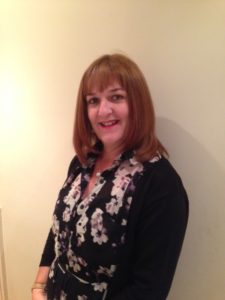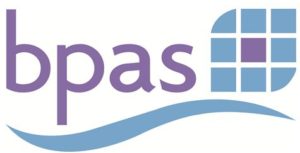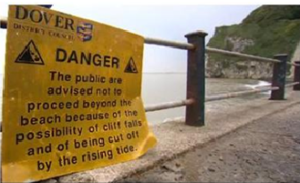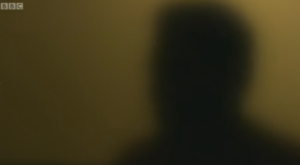“The result had been devastating for three young women, who ran out of the assembly crying after it was inferred that they were murderers, because they had had an abortion.”

I have been involved in teaching sex and relationships education for the last 15 years. Both, as a school nurse, then working for my local authority, and now as education manager for British Pregnancy Advisory Service (BPAS). Over these years, we have seen different political parties come and go, debates about making sex and relationships education (SRE) compulsory, and new guidance being needed, but never produced. What has actually changed? Well nothing at the time of writing.
The problem with this is it puts young people at risk from organisations with very strong (not always accurate) views and beliefs, and in these days when money for school SRE is very tight or non-existent, these same organisations offer their services for free. Which for cash strapped schools can seem like a great option to ensure their students get these vital life skill messages. But do we really want to trust such organisations?
When I was working for my local authority I received a very upsetting call from a school nurse at a mixed secondary school. She had been asked to support an assembly on abortion, delivered by a pro-life organisation. The result had been devastating for three young women, whom had run out crying after it was inferred that they were murderers, because they had had an abortion. This was a 6th form assembly with 150 young people present, so the odds of someone in the room either having had or knowing someone who had had an abortion were high.
In what other part of a schools’ curriculum could you get away with giving young people such wrong and misleading information?
As we know 1 in 3 women will have had an abortion by the age of 45. Why then is so little planning and prep given to such important areas of young people’s lives? If the school had asked their visitors exactly what they were going to deliver (a very graphic DVD with misleading information given out afterwards) and watched it beforehand, would the fall-out have been as awful? If the students knew the content, then they could choose to attend or not. This unfortunately is not my only account of such practice happening in schools.
In my BPAS role, I visited a mixed secondary C of E school last year in the home counties to deliver a pro-choice session, as the school the week before had a pro-life group in. I was hoping in the intervening years since my last experience of such groups things would have improved. Sadly I was wrong. The head-of-year greeted me, with a rather worried look on his face. The woman that had come to deliver was quite aggressive with the students, waving her finger at them, almost admonishing them. I reassured him I deliver facts and evidence based information, for them to research and make up their own minds. I was also worried that the students had been given misinformation regarding emergency contraception (being told it was the same as abortion), despite the entire medical evidence to the contrary. Emergency contraception aims to interfere with ovulation and fertilisation before implantation happens, where as medical abortion ends a pregnancy. I corrected other things they had been told, and pointed them to local NHS clinics or unbiased web sites, such as NHS choices for YP, for them to find support and information.
In what other part of a schools’ curriculum could you get away with giving young people such wrong and misleading information? The answer is, I don’t think we could in any other subject.

I was booked to go to a sixth form boy’s grammar school later this year, again, to do a follow-up after a pro-life session. The school then asked to change the format, so we had a head-to-head debate, which I declined, as I don’t feel it would have been supportive of the young men’s education, or given them the correct information about sex and relationships, particularly, condom use. When I explained my concerns, the school decided to cancel the whole idea. It’s such a shame for those young men at a pertinent time of their lives.
My last experience of helping to put accurate information to young people, was after a pro-life group set up a stall and banners outside a 6th form college on the south coast. They were not invited by the college, but set up on the pavement outside. It was brought to my attention, because a mother of a young woman at the college contacted BPAS through Facebook, because she was so worried, as she had collected her older daughter but had her younger child in the car. She was also concerned that a young person at the college may have been experiencing unintended pregnancy or may have had an abortion, and the effects it would have on them. I approached the college, and was invited to have a stand during their ‘Be Well’ week teaming up with the local sexual health drop-in. It was a great success with many young people dropping by for accurate information, exploring contraception, condom use, STI’s and un-biased places to obtain a pregnancy test, or access sexual health services.
I recognise the desire of schools to present young people with a balanced education, but there is no virtue in any balance struck between information and misinformation. Unfortunately, in my experience, that is the kind of balance that many schools end up presenting when they ask both a pro-life group and a group like BPAS in to speak. That makes my job, and potentially these young people’s lives, all the harder.
I am passionate about sexual and reproductive health and have devotion for teaching young people about SRE, and I believe that all young people should have access to accurate, unbiased, up-to-date information about relationships, puberty, sex, consent, contraception and STI’s. Delivered to them in (and out of) schools, by people who want to impart this knowledge in a manner that will allow them to obtain the facts, in order for them to have safe, enjoyable and healthy sex lives, either now or in the future.
Julia Bradley – Education Manager & Lead Nurse BPAS.




